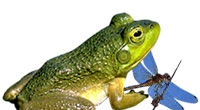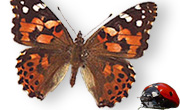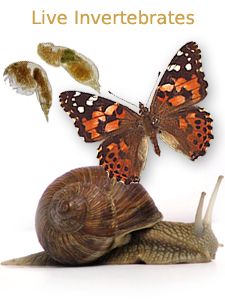Fax: (916) 381-4006



Live Invertebrates |
 More than 95% of the Earth's animal species are invertebrates (animals without backbones). They can be found in most habitats. Many are found only in the sea and some groups living on the land are found world-wide. There are thought to be between 3 million and 15 million species in the world (47 000 species of vertebrates). More than 95% of the Earth's animal species are invertebrates (animals without backbones). They can be found in most habitats. Many are found only in the sea and some groups living on the land are found world-wide. There are thought to be between 3 million and 15 million species in the world (47 000 species of vertebrates).
Invertebrates are important in the functions and processes of most ecosystems. They are spectacular, abundant and diverse. They include the Giant Squid at 18m long and gall mites, which are less than .25mm long. Invertebrates have played an important role in discoveries about how the nervous system works. The squid, aplysia (sea hare), leech, horseshoe crab, lobster, and cockroach have all provided scientists with models by which to study the nervous system. The squid even helped win the Nobel Prize in Physiology or Medicine in 1963. Invertebrates are useful animals to study because their nervous system functions in basically the same way as that of vertebrates. Neurons in all animals work using an electrochemical process. Because the nervous system of invertebrates is less complex than that of vertebrates, it is easier to isolate and study neural functions in these animals without backbones.
|
| Featured Items |
|---|
| Crayfish Live - Class 12 |

Crayfish, sometimes called crawfish, or crawdads are freshwater crustaceans resembling small lobsters, to w... |
|
Read more »»»
$37.20 (Buy Now) |
|---|
| Daphnia - Class 60 |
 Daphnia are small, mostly planktonic, crustaceans, between 0.2 and 5 mm in length. Daphnia are members of the ...
Daphnia are small, mostly planktonic, crustaceans, between 0.2 and 5 mm in length. Daphnia are members of the ... |
|
Read more »»»
$16.00 (Buy Now) |
|---|
| Dragonfly Nymphs - Each |
 A dragonfly is any insect belonging to the order Odonata, the suborder Epiprocta or, in the strict sense, the ...
A dragonfly is any insect belonging to the order Odonata, the suborder Epiprocta or, in the strict sense, the ... |
|
Read more »»»
$2.75 (Buy Now) |
|---|
| Madagascar Hissing Cockro... |

The Madagascar hissing cockroach (Gromphadorhina portentosa) is one of the largest species... |
|
Read more »»»
$9.00 (Buy Now) |
|---|
9298 Elder Creek Road
Sacramento, CA 95829
(916) 386-2665
9298 Elder Creek Road
Sacramento, CA 95829
(916) 386-2665